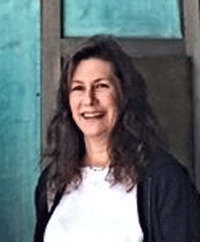Two of our committee members, Macarena Lopez (Chile) and Gerard Webster (Australia) share ways in which they have co-created new therapeutic processes with their clients as the pandemic dislodged the therapy from its familiar spatial frame, the office. From the rupture of this dislocation in space, new processes with children and families emerged in virtuality, a new contextual field. In Gerard’s work, the functions of the computer became a part of the voice of the child. In Macarena’s project, the online relational capacity of children was expressed with vitality. Our committee briefly shares Gerard and Macarena’s thoughts and observations about this work with you.
Gerard writes:
Jonah [not his real name; patient is here anonymized] is a 9-year-old boy who was removed from his mother’s care due to severe neglect at the age of 2 years. He has seen a psychiatrist since he came into government care and has been diagnosed with Attention Deficit Disorder (with Hyperactivity) and Oppositional Defiant Disorder, challenges that confront him more often at home than at school. He was referred to me due to his pervasive sexual behaviour problem that has been resistant to the combined treatment of psychotropic medication and psychological counselling provided over the last four years.
Jonah’s initial sessions posed the typical challenges of engaging a ‘borderline child,’ but his mistrust of therapists weighed heavily due to past negative therapy experiences. At first, he insisted that his foster-mother remain in the room, but eventually he trusted me sufficiently to want to have sessions with me alone. It was not long before he began to share his secrets of horrid dreams of being sexually assaulted. Later, he described how his sexualised behaviours with peers and younger children reversed the role he was thrust into in the narrative of his dreams. Then came the Covid-19 lockdown.
Faced with the choice of suspending Jonah’s fledgling treatment or of attempting the previously unimaginable – online child psychotherapy with a behaviourally challenging child – we opted for a trial. Jonah quickly discovered ways of playing. He was able to use the chat function on Zoom to make patterns to show off the artistic talents we had recognised pre-Covid. His constant fidgeting and avoidance of vulnerability continued to be played out on screen but, simultaneously, he discovered how the chat function could be used to tell me that he trusts me, hates me, and wants to talk about the things that trouble him but that he is not yet ready. Jonah mutes me when he becomes overwhelmed by our discussion which, of course, brings him great pleasure. Online treatment gives Jonah the power to more directly influence the intensity of our shared experience, thereby creating a greater sense of safety. I respect his choice and judgement about what he can tolerate. If only his abusers had done the same. At the time of writing, six months after the Covid lockdown, Jonah continues to make use of his online therapeutic relationship.
And Macarena writes:
I would like to share my challenging but rewarding experience of working from home. With Verónica Avalos (child therapist of the IARPP-Chile Child and Parents group), we created an “Accompaniment group for families with preschool-age children at Covid-19 times.” The pandemic encouraged us to form this group, since there is experience with groups of families, but not so much with little kids, and definitely not online.
We have been impressed with the need that families have of sharing their feelings and emotions, and with the relational capacity of the kids online, especially with the other kids and with the therapists. We have enjoyed the energy and vitality of the group, in contrast to the hard times we are living due to the virus. We are still more fascinated with kids of this age and the way they play, express themselves, draw, move, tell, think, project. As an example, in the first session, after presentations, we asked everyone to draw something about the word coronavirus: one of the kids got angry and crumpled the paper, and said that coronavirus was angry with him; another boy said that the virus was sick; two girls jumped; a girl made a drawing of a beach and said that the coronavirus could drown. The whole climate became chaotic; a boy brought skulls; all worrying and terrifying aspects of the virus appeared!
The families of the group fortunately were healthy and did not have close people with the disease. They have been touched and moved by the psychological, economic and social consequences of the confinement. Covid times have increased the visibility of the family problems, such as couple difficulties, loneliness, gender roles in adults. Some kids of the group have regressive and anxious symptoms. These have been the main therapeutic topics of our group.
We want to underline the constant holding, support and company function of the group. We think that sharing their feelings and the mirroring function of the group have helped parents to be more supportive with their little kids. Parents who have stayed in the group value being as mentally healthy as possible to hold their kids.
To me, these sparks of therapeutic creativity that create growth are contagious. They feel like hope.
Ann Marie Sacramone (USA), co-chair
New York, NY
 Ann Marie Sacramone, MS.Ed., L.P.
Ann Marie Sacramone, MS.Ed., L.P.
Email Ann Marie Sacramone



